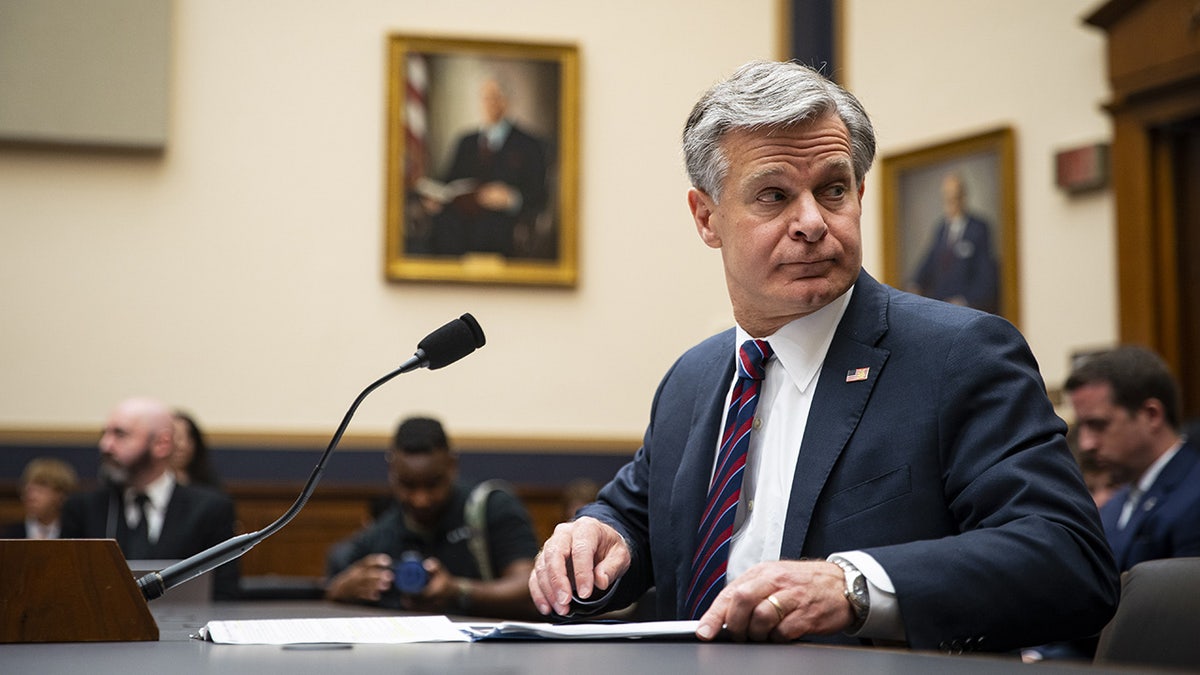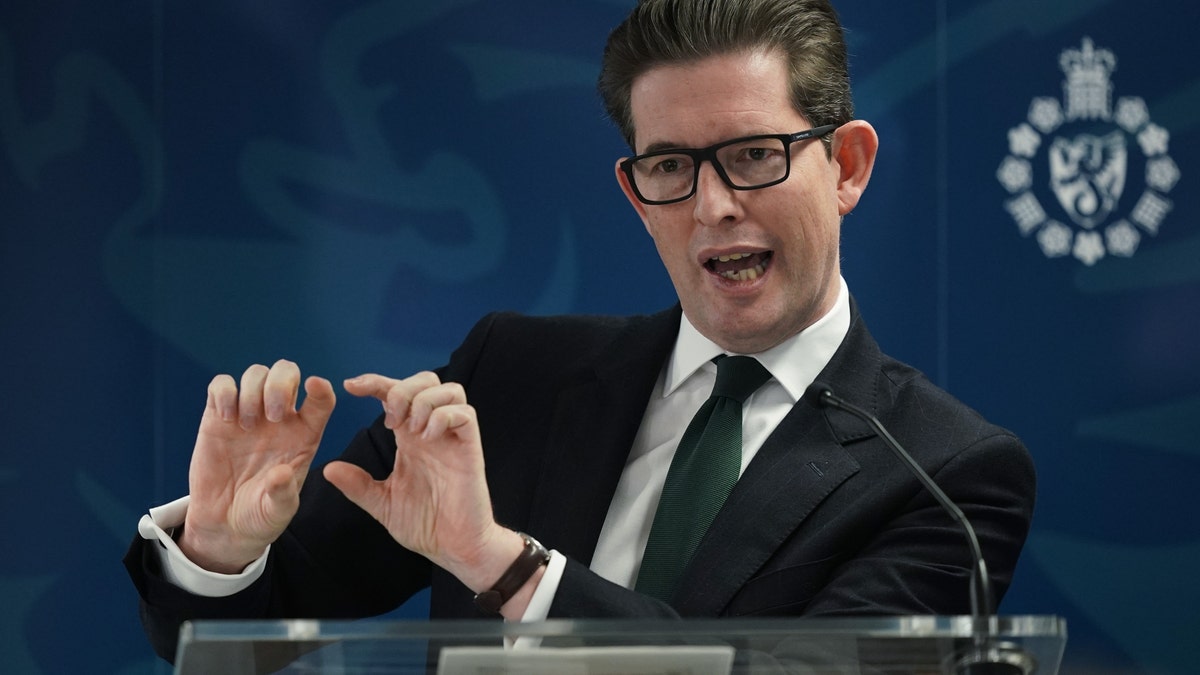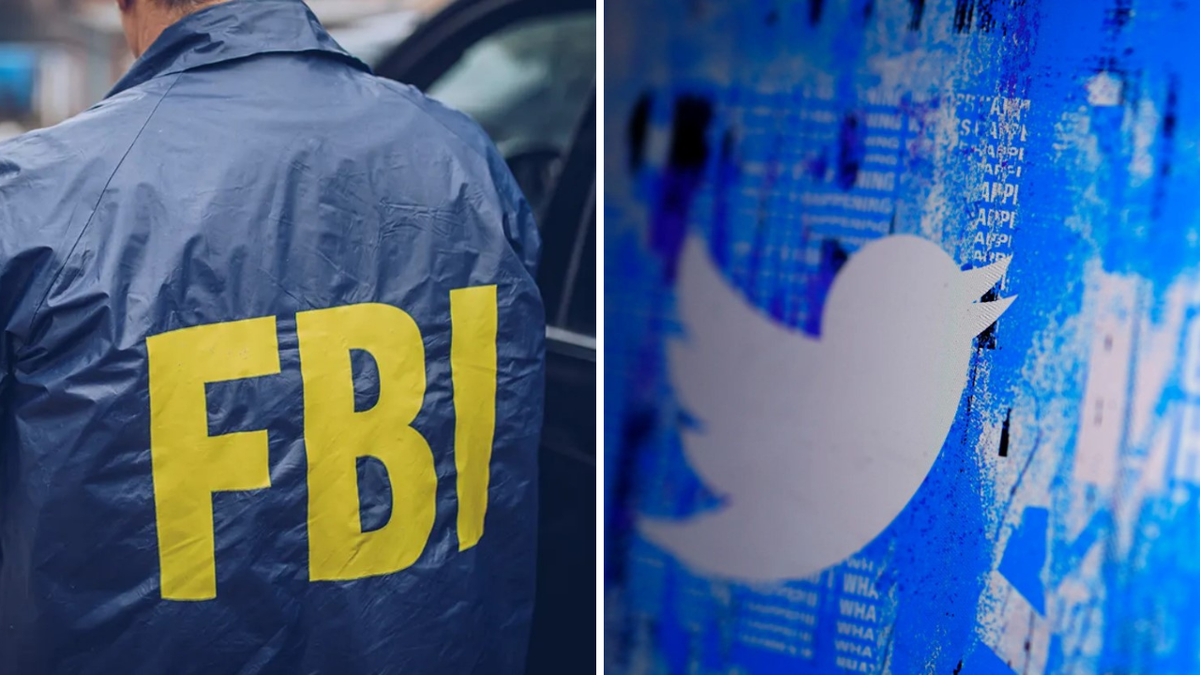How ‘Protect,’ an AI-powered phone app, can protect against crime
The demo explains how artificial intelligence is used in the app and its features.
The chiefs of the FBI and Britain’s MI5 have raised concerns about the enormous and terrifying potential artificial intelligence poses for terrorists, saying the technology adds "a level of threat to that we haven’t previously encountered."
"It’s one of those issues where no one has a monopoly of wisdom and trying to have a different form of public-private partnership and, crucially, international partnerships," MI5 Director General Ken McCallum said during the Five Eyes alliance conference in California this week.
The conference between the United States, United Kingdom, Canada, Australia and New Zealand focused on the launch of an initiative aimed at finding innovative responses to developing intelligence threats, particularly in the face of new technology such as AI generative platforms.
"Emerging technologies are essential to our economic and national security, and America’s role as a leading economic power, but they also present new and evolving threats," FBI Director Christopher Wray said ahead of the conference.
NOT OUR NATION'S JOB TO KEEP ALLIES ON ‘CUTTING EDGE’ OF AI DEVELOPMENT, FORMER CIA CHIEF SAYS
"The FBI is committed to working with our Five Eyes and industry partners to continue to protect emerging technologies, both from those who would steal them and those who would exploit them for malicious purposes," he added.
Heads of the intelligence agencies of each member of the partnership gathered for the first time in a public appearance to stress the need to focus on these issues.

FBI Director Christopher Wray is shown during a House Judiciary Committee hearing in Washington, D.C., on July 12, 2023. (Al Drago / Bloomberg via Getty Images)
Dr. Condoleezza Rice hosted a fireside chat with all five members, including McCallum and Wray, who both said their organizations are monitoring AI developments and need to cooperate with experts in the private sector to tackle emerging threats, The Guardian reported.
"We’ve seen AI used to essentially amplify the distribution or dissemination of terrorist propaganda," Wray said, citing examples such as using AI to hide alarming searches – such as "how to build a bomb" – or find holes in AI-built infrastructure security.
WHAT IS ARTIFICIAL INTELLIGENCE (AI)?
"The use of AI in a way that if it’s sophisticated enough to create potential deepfakes is something that adds a level of threat to that we haven’t previously encountered," Wray added, noting that it’s a threat the FBI continues to "look out for" since it could amplify and strengthen "existing strategy by hostile nations."
Daveed Gartenstein-Ross, CEO of Valens Global and associate fellow at the International Centre for Counter-Terrorism at The Hague in the Netherlands, told Fox News Digital that he agreed on the need for cooperation with private companies to help address these issues, arguing that such a partnership would prove an "unambiguous" positive for governments.

MI5 Director General Ken McCallum (Yui Mok / PA Images via Getty Images / File)
"The trend for every company that works globally is to have at least a quasi-cooperative relationship with local authorities," Gartenstein said.
"There's a wide variety of reasons for that, and in some cases, it's because the platform could face liability," he continued. "In some cases, it's the desire to preserve life, but most platforms have some relationship with law enforcement and intelligence for a variety of reasons. It's the kind of outreach that they'll normally do."
EXPERTS SPLIT OVER WHETHER STARGAZERS SHOULD BE LOOKING FOR ALIENS OR NEW TECH
Gartenstein discussed the example of how law enforcement tried to work with social media platforms, which "obviously housed propaganda" that was "exploited by terrorist groups." Now, he noted that everyone is aware of the potential for generative AI to serve a similar purpose, and working with the companies making those platforms is one of the most effective ways to get ahead of these issues.
He noted that there is already an "open line of dialogue" between many of the companies building AI platforms and the U.S. government.

A split image of an FBI agent in an official windbreaker and the Twitter logo on a blue screen. (iStock | AP Photo / Gregory Bull)
Part of the concerns lie in the fact that the potential of generative AI "is only bounded by the limits of human creativity," according to Gartenstein.
Among some uses he’s seen or heard about, Gartenstein listed identity impersonation that can copy a person’s writing style or even voice by using audio files (should they exist) and fake images of Donald Trump being arrested as generated for an experiment by investigative journalists at Bellingcat.
"The question isn’t so much what can be done as it is what can’t be done," he said.
The FBI did not respond to a Fox News Digital request for comment by the time of publication.










































